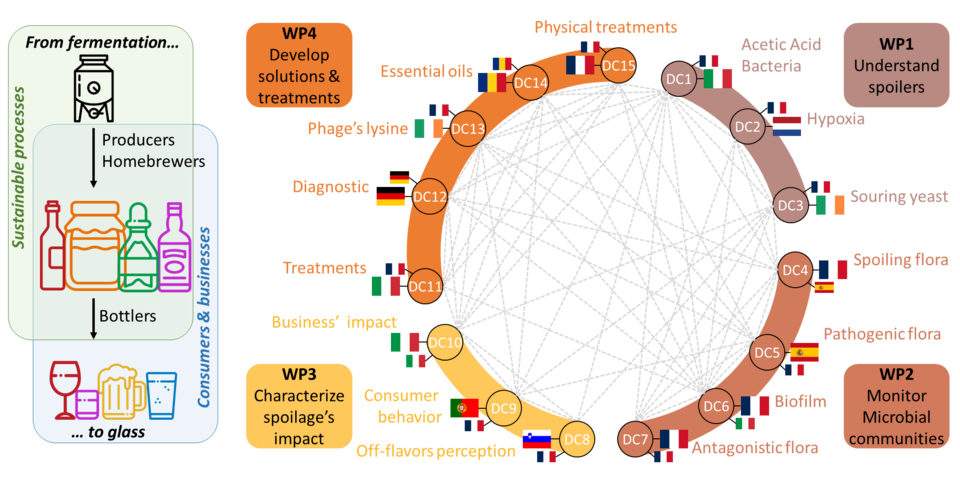Management and control of spoilage microorganisms in the production of fermented beverages
As part of a Marie Skłodowska-Curie project, a large-scale research project with participants from no fewer than ten different European countries will soon be starting at the Wine Campus Neustadt! With Marie Skłodowska-Curie projects, the European Union aims to specifically promote the international and cross-sectoral careers of scientists, make Europe more interesting as a research location and create a strong pool of European researchers.
Europe has always held a leading position in the production and export of fermented beverages (wine, spirits, beer, etc.) and is one of the largest exporters of these beverages. However, the competitiveness of the European sector is increasingly being called into question. Microbial spoilage, defined as damage caused by microorganisms, is a growing problem in the beverage industry. Beverages with negative sensory characteristics as a result lead to economic losses worldwide.
The SpoilControl project will train the next generation of young researchers in sustainable fermentation technologies who will be able to overcome current and future challenges posed by microbial spoilage and contribute to improving the quality and safety of fermented beverages worldwide. To this end, there are fifteen individual research projects with strong links, cross-sectoral and interdisciplinary approaches. With strong industry involvement, four work packages will analyze and better understand harmful organisms in beverages in practice and research solutions for detection and treatment.

The objectives of Prof. Dr. Maren Scharfenberger-Schmeer's working group at the Wine Campus Neustadt (see Figure DC12) focus on the development of an efficient, reliable, cost-effective and universal analysis method (i.e. for several beverages) that enables the early detection of harmful organisms that are largely responsible for the spoilage of fermented beverages.
These are usually acetic acid and lactic acid bacteria. Although there are various analytical methods for monitoring harmful microorganisms during the process, they are generally too expensive for SMEs (small and medium-sized enterprises).
This objective will be addressed at the Wine Campus by a PhD student who will work closely with all the organizations involved in this sub-project to find innovative solutions. In addition, a two-month secondment to the company Immundiagnostik AG is also planned, which is working on the development of a smartphone-based app for the detection of harmful organisms. This project will start in the fall of this year.
SpoilControl will raise awareness of safety issues in fermented products and promote hygiene practices to limit microbial spoilage for all end users, including producers, citizens and home brewers.
